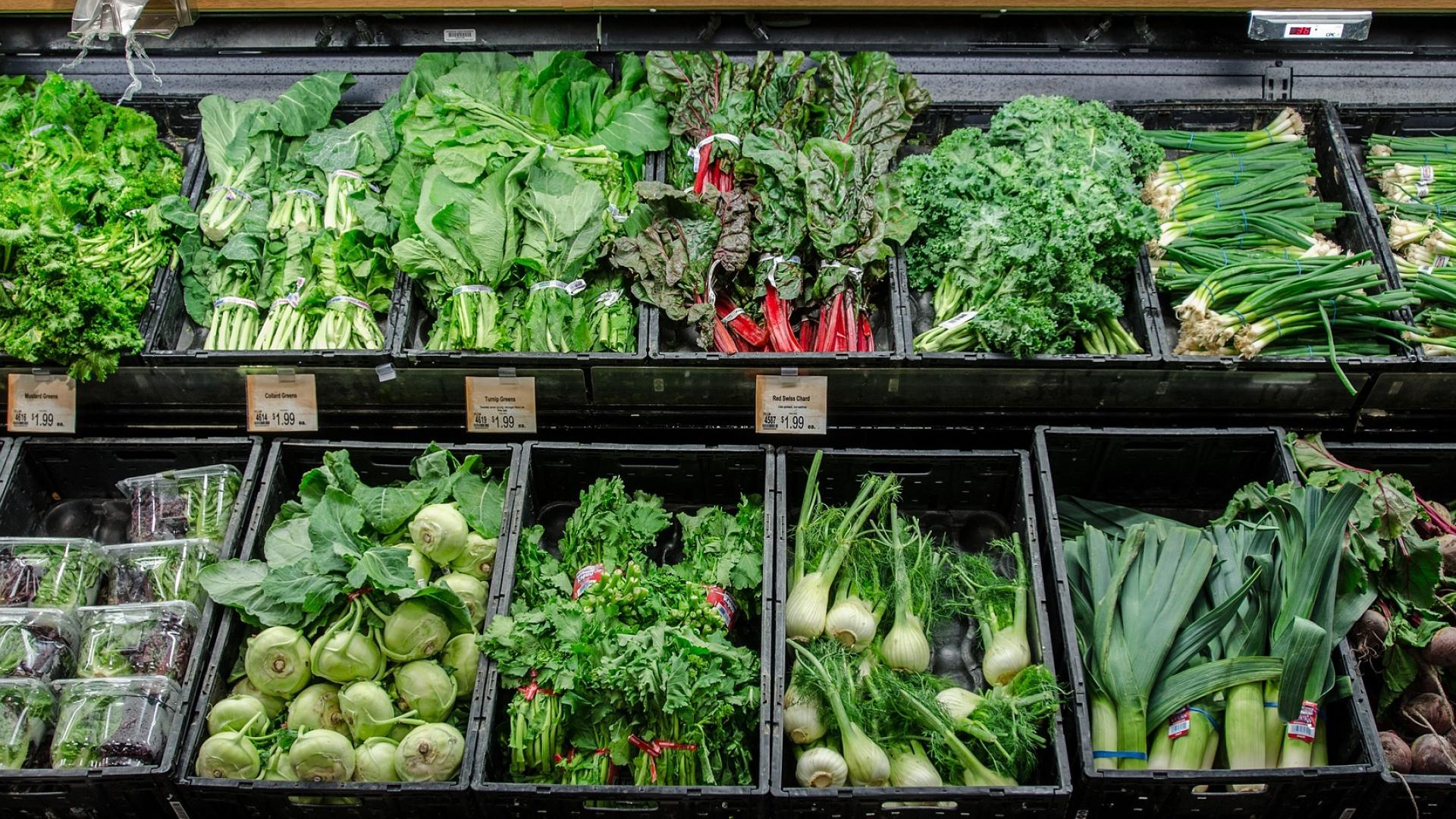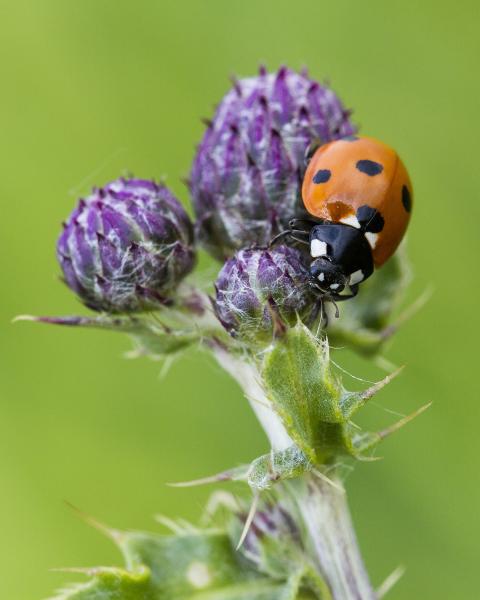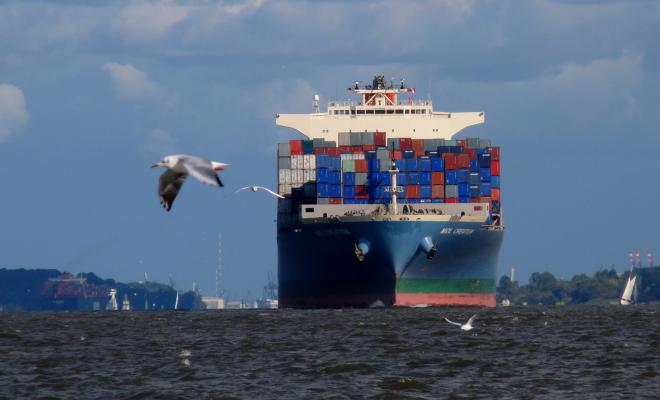Sandra Bell16 Apr 2019
Recent studies pointing to global insect decline are a wake-up call. It is increasingly clear that intensive farming is destroying the very species that underpin food production - including pollination, natural pest control and soil health.
A legacy of subsidies that have propped up high levels of production at all costs are a key part of the problem. The UK government has promised to overhaul farming policy so that when we leave the EU farmers will instead only be rewarded for delivering public goods.
Yet we continue to hear arguments for intensifying production apparently without heed for the price we will all pay for neglecting nature.
We need to rethink how we farm
The relationship between food production and a healthy environment should be obvious.
As the authors of the recent global insect decline study have concluded “A rethinking of current agricultural practices, in particular a serious reduction in pesticide usage and its substitution with more sustainable, ecologically-based practices, is urgently needed to slow or reverse current trends, allow the recovery of declining insect populations and safeguard the vital ecosystem services they provide”.
We need to consider the future challenges of producing food in a changing climate and we need insects to help us. We should be boosting the services that nature provides. Not destroying them.
Another recently published study shows that there is an overall decline in pollinator diversity in the UK. Some species are doing well but as Dr Gary Powney of the Centre for Ecology and Hydrology (CEH) points our "It would be risky to rely on this group to support the long-term food security for our country". Diversity is needed for resilience.
A new farming policy for the UK?
In the light of this the UK government’s promise for a new farming policy after the UK leaves the EU that rewards farmers for delivering public goods – from clean water to thriving wildlife – seems positive.
But the approach still has its detractors. Calls that producing food to feed the nation is itself a public good are not surprising coming from the farming lobby. But they have also been taken up by MPs from across the political spectrum in the debate about how farmers will be supported outside via the Agriculture Bill.
Worryingly, the Bill currently contains a clause that would allow grants to increase productivity without any regard for environmental impact. Although former farming minister George Eustice gave assurances that this would not be a ‘narrow’ definition of productivity there are no safeguards written into the Bill.
Productivity is falling
Concerns about producing food in the UK and avoiding an increase in imports are valid. The June 2018 Environment, Food and Rural Affairs (EFRA) Committee report on the future for food, farming and the environment notes that farming productivity in the UK is falling behind many of the UK’s competitors.
Yet the answer does not lie in paying farmers simply to produce more food without regard for environmental impact.
The recent fall in productivity comes despite an increase in recent decades of chemical inputs, intensive cultivation, monoculture cropping and raising stocking rates above the carrying capacity of land.
Farming with nature
We need to change the way we farm to actively manage farmland to boost the ecological processes that support production, such as natural pest control, nutrient cycling and pollination.
This approach may be called Agro-ecology or Ecological intensification – either way it's about working with nature across the whole farm. There are innovative farmers already doing this but it needs to be the norm not the exception and for that farmers need support.
The Nature Friendly Farmers Network agrees:
“We believe that nature friendly farming is not only better for nature but is also the most productive and sustainable way of getting food from our land1.
Off the chemical treadmill
Pesticides are one of the main farming inputs used to increase production in non-organic systems. But they may be having a terrible impact on the very insects we need for pollination.
It is becoming increasingly clear that over reliance on pesticides may be misplaced. A study in France found that the vast majority (94%) of farms would not produce less crops if they cut pesticides. It found that two-fifths would actually produce more
And farmers have told us that they want to cut their reliance on chemicals but they need the right kind of R&D and advice to do things differently.
Friends of the Earth is promoting amendments to the Agriculture Bill that would cut pesticide use (and ensure farmers are supported to use alternative methods of pest control), boost agro-ecological farming and ensure that public goods delivering positive environmental outcomes are clearly given priority.
Is technology the answer?
Ministers have made it clear that the Agriculture Bill could enable high tech solutions to be funded with productivity grants. Innovative technology could help farmers if it is directly linked to environmental outcomes such as cutting energy or chemical inputs.
For example weeding robots have the potential carry out non- chemical weed control, which could allow for non-problem weeds to be left in the field, and cut resistance problems. The technology exists but human inclinations to remove all weeds may take this in the wrong direction resulting in robots which have the same scorched earth approach as a non-selective herbicide.
There are also examples of technology which should not be funded with taxpayers’ money such as gene editing. Most gene edited crops proposed for agriculture are herbicide tolerant which simply exacerbates chemical-dependent agriculture. It would be much better for the long term sustainability of farming livelihoods and of nature to spend public money on R&D into Integrated Pest Management solutions that can help farmers get off the chemical treadmill.
A new approach to productivity and profitability
Agro-ecology takes a different approach to productivity with the emphasis not just on yield but also on reducing inputs, cutting waste and developing long term resilience.
As the UN concluded in its recent report on Biodiversity for Food and Agriculture.2
Biodiversity makes production systems and livelihoods more resilient to shocks and stresses, including to the effects of climate change.
We need to move away from a “yield-is-king” culture. By focusing on short term yield increases farmers become more reliant on increasing expensive inputs which also increases their financial risk. So farmers are investing more and more in protecting their crops while profits decline.
Investing in nature offers a different way forward. The NFU says that farmers “cannot be green if they are in the red”. The truth is that in the future farmers will need to be green to avoid being in the red. Without thriving biodiversity the ability of our land to keep producing food is under increasing threat.
That doesn’t mean that Friends of the Earth is unsympathetic to the huge challenges that farmers face and their very legitimate concerns about how they will survive on the global market.
Safeguarding farmers’ livelihoods
Improved profitability for farmers can be achieved in many ways – through reducing inputs, diversification, or ensuring a fair price for products through the supply chain.
Friends of the Earth is supporting additional measures in the Agriculture Bill that would help safeguard the livelihoods of UK farmers without encouraging intensive farming practices.
• The Bill must include a mechanism to secure long-term funding for farmers so that they have sufficient support to deliver the public goods we all depend on.
• It should include duties to ensure fairness in supply chain dealings to stop farmers being squeezed by major retailers and food companies.
• And it should put in place safeguards to ensure future international trade deals won’t undermine domestic standards and undercut our UK farmers.
The future for food production
The UN’ s Food and Agriculture Organisation has warned that:
while the last half-century has witnessed striking increases in global food production through intensive use of inputs, such practices may deplete natural resources and impair the ability of agro-ecosystems to sustain production into the future.3
The government wants to secure a long term future for farmers and food production in the UK. The decisions it makes in the Agriculture Bill are critical. We risk having pockets of nature friendly farms surrounded by an intensively farmed landscape propped up by productivity payments – all funded by the taxpayer.
Boosting agro-ecology and rewarding farmers for helping nature to thrive are a better choice for food production and the environment. The government must heed these warnings and use the Agriculture Bill to support farmers to work with nature, rather than against it – before it’s too late.




